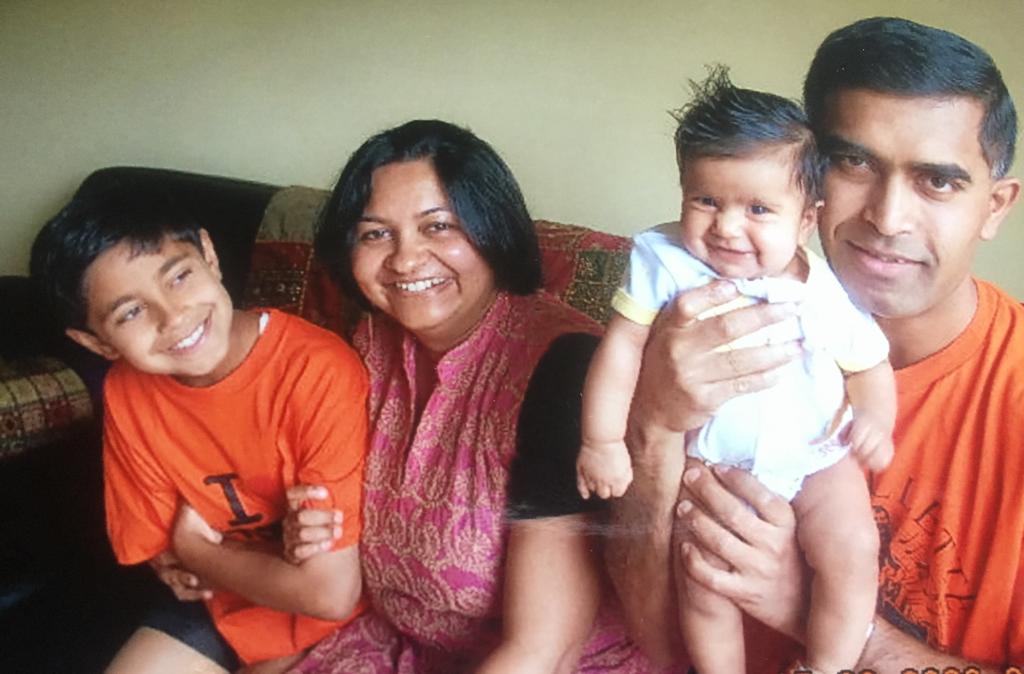Continued from Trailing & Being Trailed: Round 2
After eight years of career slowdowns due to my trailing spouse circumstances, I was thrilled to accept a job as a Dow Jones corporate bonds reporter in 2006 — but it came with a heavy price. Given that my start date was in the middle of the school year and there was no guarantee this position would work out past the trial period, I decided it would make most sense for me to move to New Jersey alone, while my husband and our 7-year-old son stayed in Connecticut.
On weekday mornings, I would listen to my son practice piano over the phone; we talked again every evening about his school day and homework. For months, our precious weekends together focused on grocery shopping, cooking a week’s worth of meals, swimming lessons, and occasionally visiting a museum or watching a movie.
Our social network — already weaker than we would have liked, due to so many moves — also took a nosedive because we had to prioritize spending quality time together as a family over meeting friends.
My three-hour Sunday night drives back to an empty N.J. apartment were pure torture. I counted the days till I could get back to my family each Friday. They, in turn, felt “left behind.”
Why Was I Doing This?
It didn’t help that my work — the reason for our separation — was difficult to explain, especially to a child. Corporate bonds weren’t part of the average person’s lexicon; “The Big Short” and its five Oscar nominations were still nine years away. But it wasn’t long before more Americans began to get more familiar not just with corporate bonds but also the more esoteric variety: asset-backed securities. These are bonds typically backed by loans like home mortgages, automobile and student loans or credit card debt, then bundled together and sold to investors. If borrowers don’t pay back loans, these investors lose money.
When housing prices began declining, several borrowers were unable to pay mortgage dues, creating a series of defaults. This impacted my family in multiple ways. My area of reporting suddenly got more attention, putting me on the tightest deadlines of my career. At the same time, our growing realization that the U.S. economy was on shaky ground made us uncertain about our job security. And when we began planning for my now-trailing husband and son to join me in New Jersey, realtors expressed nervousness about the price we should list our Connecticut house.
The only saving grace, after six months on the job, was my editor’s offer to let me work from home one day a week, in exchange for me working an earlier shift every day. This schedule change meant that I could drive to Connecticut on Thursday evenings and spend three days with my family. Even though I was still working, tracking markets and writing stories about what was once considered an obscure beat, at least the three of us were together for a long weekend.
There were many times when I wondered whether my voluntary disruption to our lives was worth it. Perhaps I should have continued working in Connecticut, living in our newly renovated house and cultivating our new friendships? But during those moments of self-doubt, my husband was there to remind me that this was a good move. It was a huge career and networking opportunity for me and the family was in a position to make it work, both logistically and financially.
Together Again
Once our son’s school year was over, we sold our Connecticut house and moved to a New Jersey town with a top-rated school. This time, it was my husband’s turn to be the trailing spouse again, sacrificing career momentum by requiring a two-state commute and negotiating work-from-home days. A few years after making this move, which he ranks as a 12/15 on the Gupte Scale, he found a job that allows him to work from home most of the time.
Having my family’s support was essential as my career became increasingly stressful yet rewarding. With the credit crisis in full swing, I was meeting not just bankers and traders, but also top officials at the Federal Reserve and ratings agencies. At one such meeting, I felt dizzy and discovered I was expecting my second child. I went into labor with our “credit crisis baby” in March 2008, as Wall Street firm Bear Stearns was being taken over by JP Morgan Chase & Co. (Watching those headlines blaze, I thought I’d miss the biggest stories of my career while I was on maternity leave, but there was plenty more to come, including the Lehman Brothers collapse and government bailout of many banks.)

Most importantly, the four of us — the family size we had always wanted — were finally together under one roof, in a place with enough career opportunities to keep us there permanently. We could finally put down our roots in a community. Even when I decided to change careers in 2013, joining Columbia University’s Graduate School of Journalism as a career services professional (helping my alma mater’s next generation of students find jobs), our family life only changed for the better. Working in academia is still challenging, but the sector is more stable and the hours are more predictable so I could spend more time with my children.I truly value this after two decades chasing headlines.
Making Up for Lost Time
We’ve now been in our current home for nearly 13 years, the longest my husband and I have lived in any house together‚ or even separately, when we were growing up! Our daughter has never known any other lifestyle; the resilience our son learned from all our times apart made him confident about his decision to move 1,300 miles away for college, although it still hit me like a fresh separation. But, we’re getting some of that family time back now due to the COVID-19 school and business closures, as the four of us are now together 24/7, working and learning from home.
Looking back on all these personal and professional disruptions from the first half of our marriage, my husband and I sometimes wonder if we should have done anything differently, but haven’t come up with an answer. We made the best of every situation we found ourselves in and, so far, it’s worked out fine. I’ve had two satisfying careers and learned a lot along the way; my husband’s flexibility has led him to a comfortable place, too. We have no plans to move again until our retirements… then again, we’ve said that before!
Missed Round 1 of Anusha’s trailing spouse story? Find it here.

